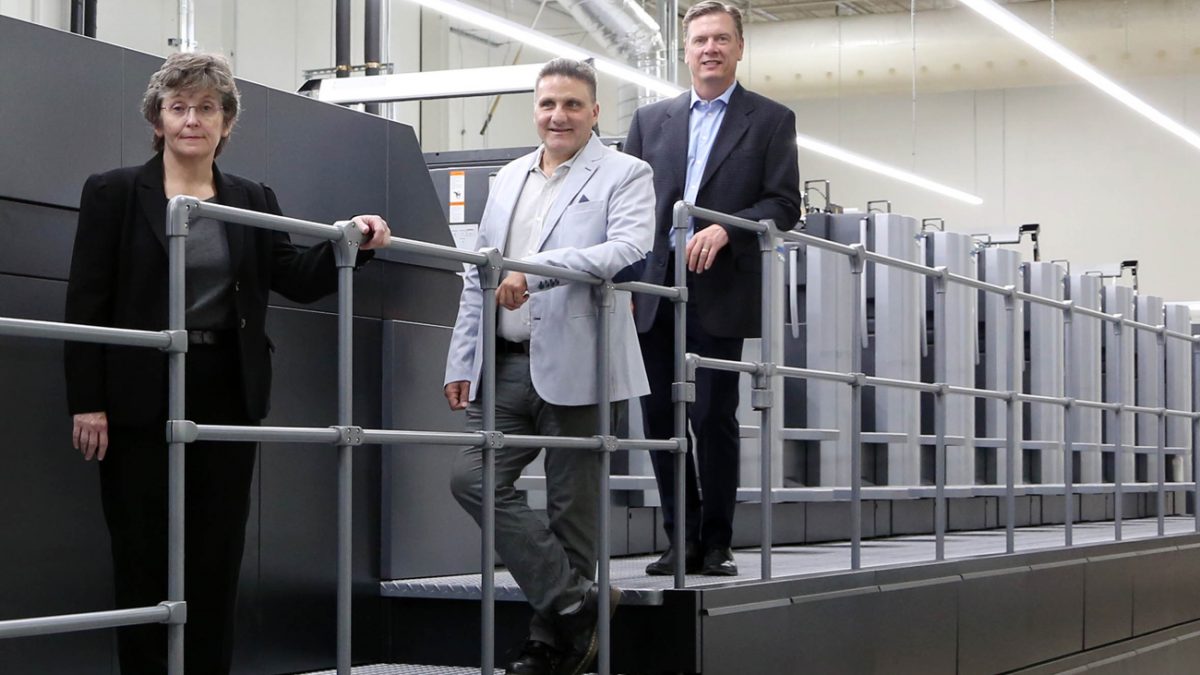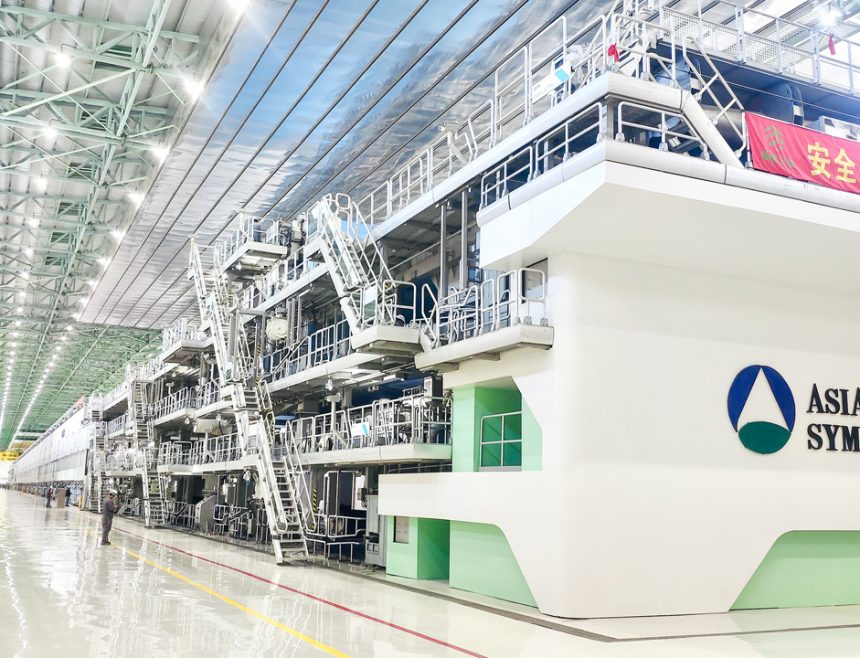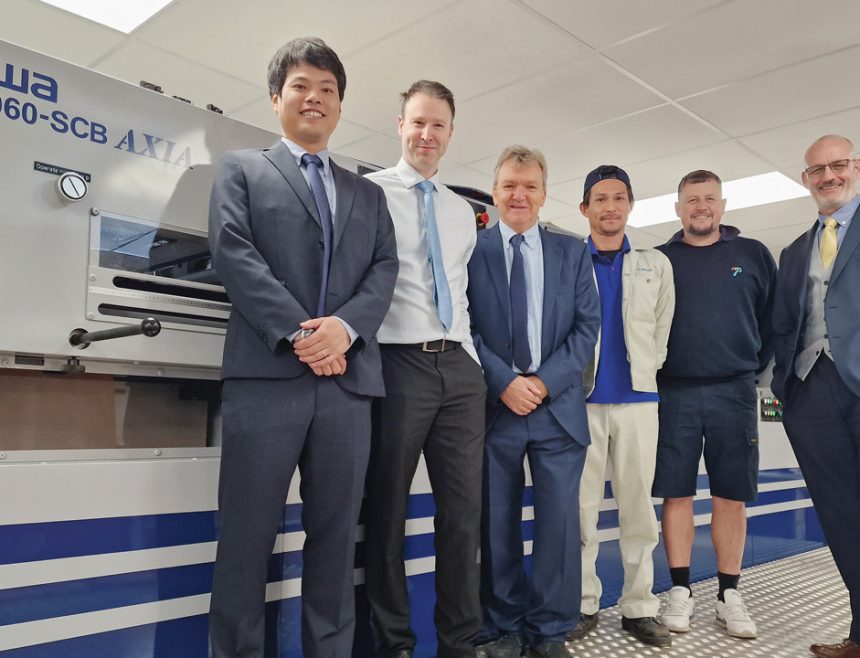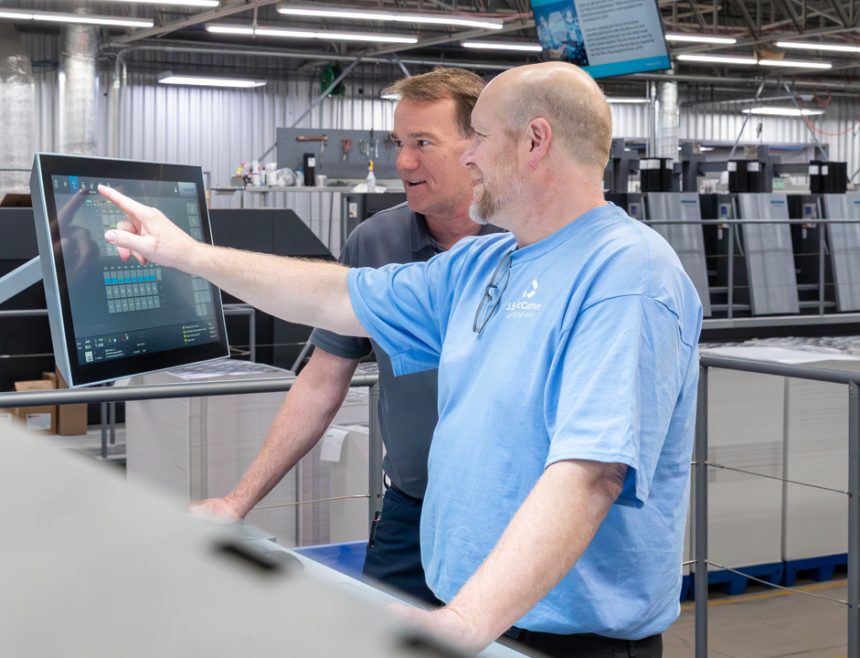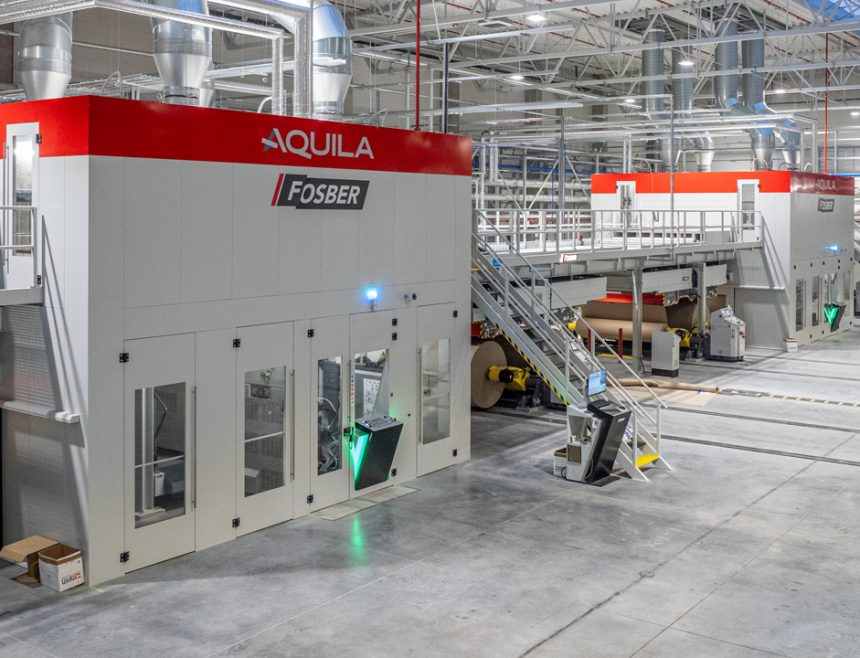Serving some of the world’s most iconic brands, Bellwyck — headquartered in Toronto, Ontario (with additional locations in Owen Sound, Ontario and Langley, British Columbia) — has its sights set on not only being the Canadian leader of premium brand and pharma/healthcare packaging but also a global leader. To achieve this goal, the company has recently installed a Speedmaster CX 102-8+LY-1+L with ‘Push to Stop’ technology from Heidelberg at its Toronto headquarters — its second CX 102 in the last 18 months. Both presses are powered by Heidelberg’s Prinect workflow and are part of Bellwyck’s larger vision of transitioning into a ‘Smart Factory’.
Fueled by its three guiding principles — innovation, high quality, and superior customer service — Bellwyck serves a variety of markets: premium cosmetics, confectionery, personal care, high-end spirits, and pharma/healthcare. With customers ranging from the largest cosmetic and pharmaceutical companies in the world to start-up brands, it prides itself on its customer experience, which is to help each customer differentiate itself from its competitors through innovative packaging.
According to Bellwyck President John McVeigh, “With our new Speedmaster CX 102, we are continuing to make significant investments to help our clients drive their efficiencies as well as stand out on the shelf. It’s a competitive marketplace out there, and our customers are looking for opportunities to be different than their competitors.”
This customer differentiation is why Bellwyck decided to design a very custom configuration for its newest Speedmaster CX 102, which has nine printing units, two coating stations and UV capabilities — the longest press of its kind in Canada. The press is the result of collaboration between Bellwyck, its customers, and Heidelberg. “We talked to Heidelberg about the kind of work we are currently running, and the types of jobs our customers want to achieve. Together, we designed this truly unique press that prints nine colors and two coatings in one pass and still runs at 16,500 sheets per hour,” says Jerry Malfara, Director of Technical Services and Innovation.
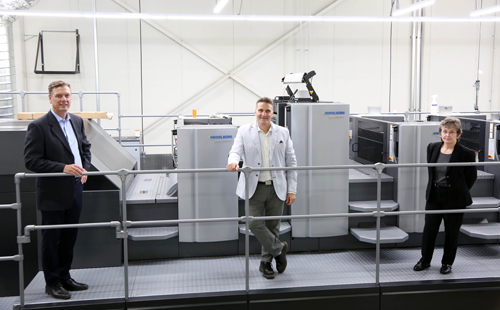
Left to right: John McVeigh, President; Jerry Malfara, Director of Technical Services and Innovation; and April Burke, VP of Operations.
Becoming a ‘Smart Factory’
Consistently producing hundreds of millions of unique cartons every year with best-in-class, on time delivery and quality is a near impossible feat without the right technology in place. Intrigued by Heidelberg’s ‘Smart Print Shop’ philosophy, Bellwyck decided to partner with Heidelberg in early 2019 to begin its own ‘Smart Factory’ transformation.
“We embarked on the transformational journey to a ‘Smart Factory’ with significant capital investment in our technologies and systems. It is a complete game-changer. It’s not just about a machine; it’s about changing our methodologies of how we properly utilize people, tools, and software to create efficiencies and increase our uptime,” says April Burke, Vice President of Operations.
The transformation began by installing Bellwyck’s first Speedmaster CX 102 with ‘Push to Stop’ technology — a seven color press with coater, in Owen Sound in January 2019. This was quickly followed up with a second CX 102 in Toronto, which is already helping to achieve some of the ‘Smart Factory’ goals. “The speed, accuracy, and consistency we get with this press have enabled us to increase our print capacity and reduce our changeovers significantly,” Malfara affirms. These installations were complemented by Heidelberg’s Prinect workflow to create a consistent and repeatable job flow from prepress to platemaking to press. Also contributing to these efficiencies is Prinect Inpress Control, the industry’s leading inline spectrophotometer that measures and controls color and register on the fly at any speed — delivering the first measurable result in less than 60 sheets, which is installed on both of Bellwyck’s CX 102s.
Only a month into production, Bellwyck is confident it will achieve the aggressive ROI it set forth for the new press. According to Malfara, “With both presses, we’re understanding how the ‘Push to Stop’ technology supports our operators. It does the work and uses the data built into the machine for each job, creating efficient changeovers and consistent repeatability. We’re very impressed by how much this machine has cut down on consumables waste and increased our energy efficiency — savings that will continue to compound with time.”
Another benefit from its Prinect-Speedmaster integration is the amount of production data that is available. Using 37 different data points collected from the press, Burke says the company uses business intelligence to evaluate each job’s performance. “We can then extrapolate that data to help us better manage our environment, from day-to-day tasks to where we have opportunities for improvement in the future.”
Success In Difficult Times
Bellwyck’s CX 102 at its Toronto location was set to install in March of 2020, and then COVID-19 struck putting everything at a complete standstill. Despite this challenge, Heidelberg and Bellwyck’s teams worked very closely to help continue to move the installation along.
In addition to the new CX 102, Bellwyck recently installed a new Diana Easy folder-gluer at its Owen Sound location. Also faced with COVID installation challenges, the Diana Easy has now been in full production since mid-June. While still early in production, Bellwyck is impressed by the production metrics of the Diana thus far.
For both the Diana and the CX 102, Bellwyck consistently runs both machines at top running speeds despite the short amount of time they have been up and running. “The fact that we can already achieve so much consistency is a true testament to the support that we’ve received from Heidelberg. From the installation to training to input from Heidelberg’s prepress, pressroom, and consumables experts, Heidelberg has been a true partner throughout this whole transformation process – and most especially, during these most difficult of times,” says Malfara.

